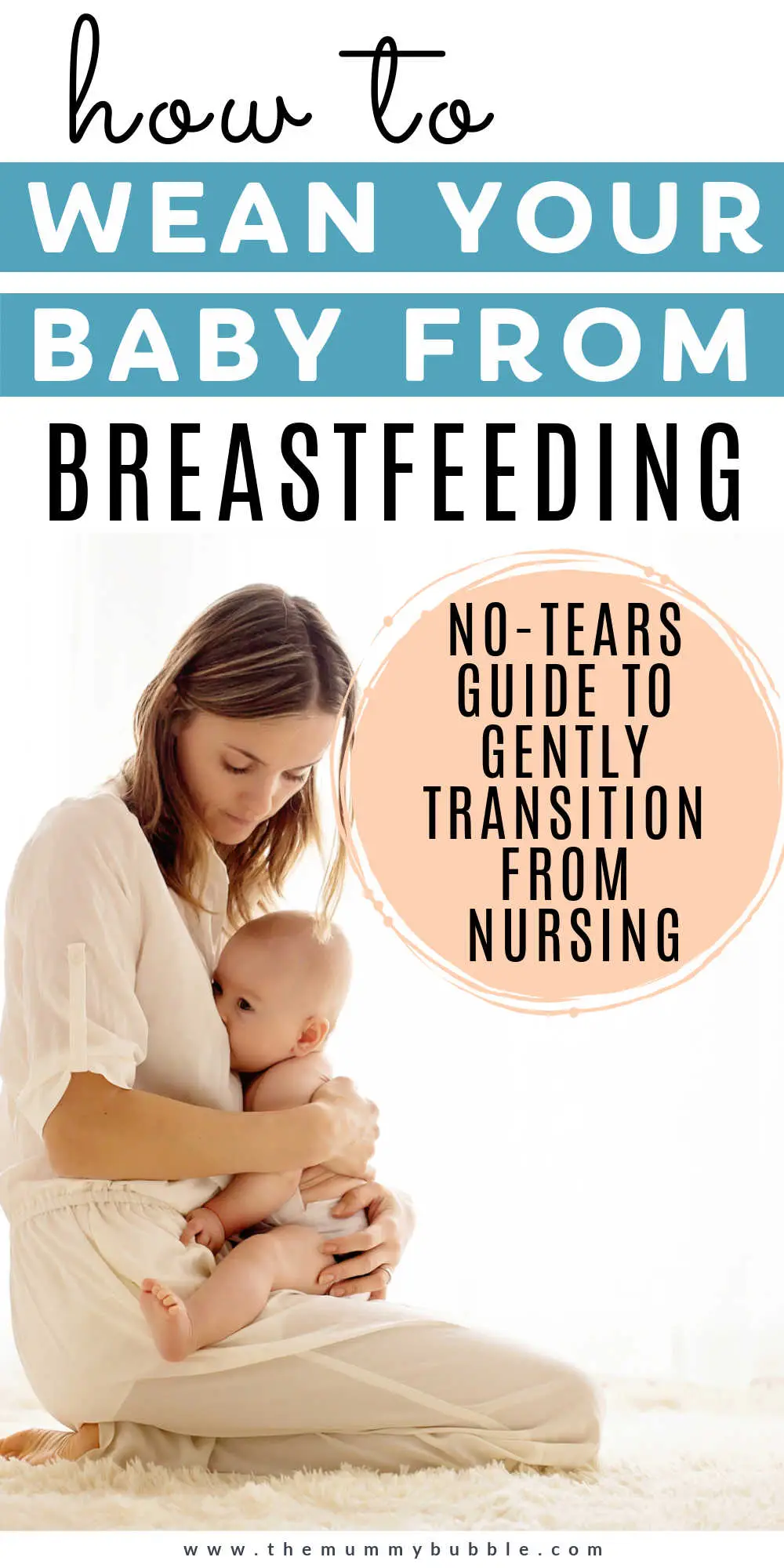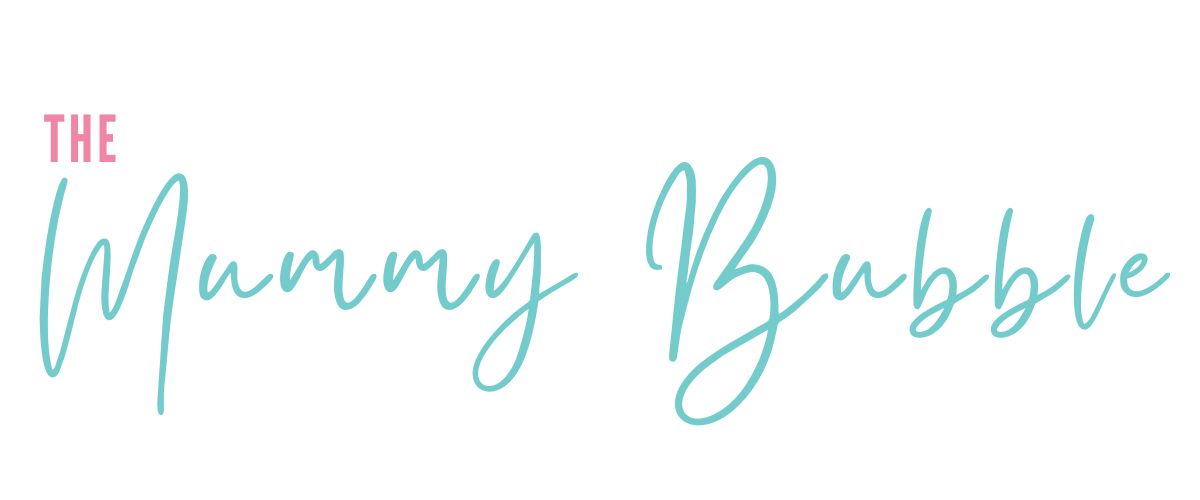So you think it might be time to wean your baby from breastfeeding?
This is an emotional time for most mothers. Although the freedom that comes from ending breastfeeding can feel pretty great, it does also feel like the end of a special connection to your baby.

I cried bucketloads when I stopped breastfeeding my first baby, mainly because the entire experience had been very difficult from day one and when I finally stopped it felt a bit like giving up.
Now I’ve looked back on it with some hindsight, it totally wasn’t giving up, but it’s a very emotive subject for new mamas.
With my second it felt sad because it had worked so well for us and I really missed how close I felt to her when nursing. Breastfeeding definitely gives you a lot of happy hormones.
Rest assured however that when breastfeeding is over it doesn’t sever the bond with your baby.
You still get to have loads of cuddles and special time together. While the end of breastfeeding does feel odd at first, it soon becomes normal as with so many milestones to do with parenting.
If you are considering stopping breastfeeding your baby, it’s important not to do it suddenly as this risks clogged ducts, discomfort and potentially the breast tissue infection mastitis.
Having said that, it may be that you have to stop breastfeeding all of a sudden. This could be because your baby just decides one day they don’t want to nurse any more, or that you are ill.
I had to stop breastfeeding immediately after my baby bit me on both breasts. Ouch. It was agony and she was nursing less, eating more solids, anyway.
I have tips for going cold turkey from breastfeeding over on this post.
When should you stop breastfeeding
The World Health Organisation recommends exclusively breastfeeding your baby to six months then introducing solid foods while continuing to nurse your baby up to two years and beyond.
At 12 months you can start to give your baby normal milk from the fridge the same as the rest of the family.
But many parents choose to continue breastfeeding well beyond 12 months and that is absolutely fine.
Only you can decide when you are ready to stop breastfeeding. You may want to consider issues such as when you are going back to work and whether you will be able to pump feeds if you are not around your child as much.
However if your baby is only feeding in the morning and evenings at 12 months then your milk supply should have adjusted accordingly to this.
Other reasons you may want to stop breastfeeding include getting pregnant again, although you can continue to breastfeed your child throughout pregnancy. The NHS has some tips on how to continue nursing during pregnancy.
The ultimate answer here is its down to you when to stop, so consider all of your options and then allow yourself to make a guilt-free decision.
3 signs baby is ready to wean from breastfeeding
While weaning from the breast could be completely down to you, there may be signs that show your baby is ready to take the leap to stop breastfeeding.
Here are the signs your baby is ready to stop breastfeeding.
Your baby is nursing less frequently
This is the biggest clue. Your baby may be spacing out their feeds more, have dropped the nighttime feed or ditched all but one or two feeds altogether.
If you decide to leave the decision to wean from breastfeeding to your baby, you may find they stick with just one or two breastfeeds per day for many months.
Baby is eating more solids
Once your baby is on three meals per day and happily drinking water with those meals, this is a good sign your baby can not only cut back on milk feeds, but perhaps also ditch them completely.

By age one babies are generally eating solids well and can now drink the same milk from the supermarket as the rest of the family.
Showing preference for drinking from cups
Your baby may be less enthusiastic for feeding time from you and happily sips water from a cup throughout the day instead.
This lack of interest in breastfeeding may begin gradually. You may also notice they stop wanting to feed in the day, but still want to breastfeed at night before bed as part of their bedtime routine.
If this is the case you can always work on ditching the daytime feeds first, then have the night feed be the last one to go.
5 steps to wean from breastfeeding
Cut back gradually
Take it one step at a time when it comes to cutting back.
Try to reduce the feeds one at a time, giving yourself a week to adjust each time you drop a feed before moving on to dropping another one.
Begin by cutting out the breastfeed that you’re happiest to drop. For many mothers this may be the middle of the day one, especially if it coincides around lunchtime.
By around eight months many babies will be eating a proper lunch which means they don’t need a lunchtime breastfeed for calories.
Take the edge off discomfort
If your breasts do become engorged between feeds then hand express a little milk, but only just enough to take the edge off.
The more milk you extract from the breast, the more your body will continue to produce. You could also try using a manual or electric pump for just a few minutes to provide some relief.
If you are uncomfortable, avoid wearing tight fitting clothes, particularly tight bras. Try standing under a warm shower to help you hand express milk to ease any discomfort.
You can use ice packs to help reduce pain as well.
La Leche League has lots of tips for helping with engorgement.
Make a switch
Up until age one your baby should be drinking infant formula milk or breast milk. After six months this should be given to them alongside a diet of solids.
If your baby is weaning and moving onto solid foods well, you may not need to replace a breastfeed with formula.
If your baby is not yet weaning, switch a breastfeed for a bottle of formula. You may need to try various different bottles to find one your baby likes, but if you’re persistent your baby will give the bottle a go.
One way to encourage a breastfed baby to take a bottle is to get someone else to offer it to them, as they may be confused at first to feed from a bottle from you when they are used to breastfeeding.
You can read more about combination feeding over here.
Offer water at night
If you’re ditching breastfeeding then cutting back on the night feeds can be particularly hard, especially if your baby uses it as comfort and to get to sleep. There’s nothing wrong with your baby doing that by the way, it means you’ll need to get them out of the habit.
If your baby is under six months then you should offer a bottle of formula on demand if they are hungry at night instead of the breast.
Babies of this age still require feeding on a 24/7 basis and it’s important they get enough calories.
Making up a bottle in the middle of the night can be tricky as you have to wait for the kettle to boil then cool. I used the ready-made formula bottles for nighttime feeds so it was ready instantly and gave it to her at room temperature.
If your baby is over six months, feeding well in the day and progressing with eating solids, then offer water if they wake at night and want to feed.
Comfort your baby
You may face some resistance from your baby at first, so be prepared to give them lots of reassurance and comfort.
Cuddle your baby, hold them close and try offering them a dummy if they are very distraught at not being breastfed.
You should also try to distract them with songs, play and walking them around the house.
While you may have a difficult few days as your baby adjusts, if you give it a few more they will eventually adapt.
Final thoughts on stopping breastfeeding
Once you’ve made the decision to stop breastfeeding, it may be a very long and gradual process.
Ending breastfeeding doesn’t happen overnight, as your supply won’t just stop when you decide to stop.
So be prepared for it to take a while.
If your baby is resistant at first, then try changing your routine. Don’t try to bottle-feed them in the same chair where you always breastfed them. Get someone else to offer the bottle and don’t rush the process. Eventually it will click.
You may also like:
20 beginners’ tips for breastfeeding

